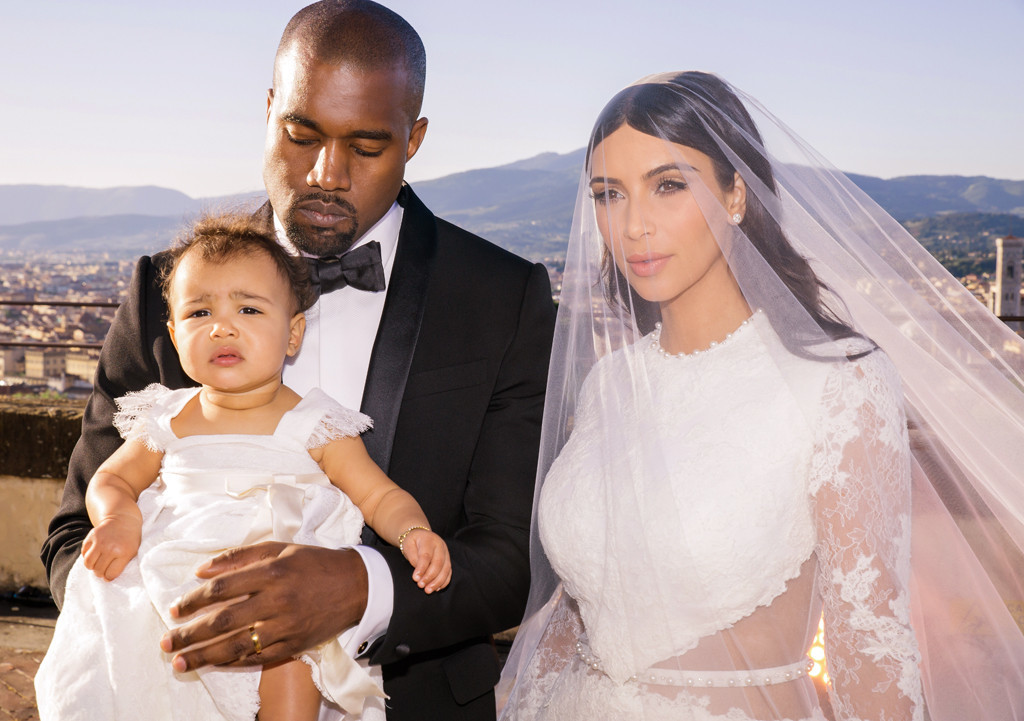By now you’ve probably heard about Kanye and Wiz Khalifa’s war of tweets. It’s the stuff rap journalist’s dreams are made of. Wiz disses Kanye’s new album name, Ye mistakes Wiz’s advice to “hit this kk” — a weed reference — for a swipe at Kim before unleashing his godly wrath. In the now-deleted stream of insults, Kanye claimed to own Wiz’s kid and couldn’t resist slinging yet another slew of slut-shamey insult towards Amber Rose, his ex-girlfriend and Wiz’s ex-wife. In case you missed them, here are all of Kanye’s tweets pertaining to Amber.




Wiz remained calm and explained that the “KK” he tweeted about hitting didn’t denote “Kim Kardashian” (he was talking about weed) and Rose weighed in with a sex-shaming comeback of her own. Soon after Wiz cleared up the misunderstood reference. West deleted his tweets and apologized to Khalifa for insulting him in the first place. But there’s been no apology for Rose.
Awww @kanyewest are u mad I’m not around to play in ur asshole anymore? #FingersInTheBootyAssBitch☝
— Amber Rose (@DaRealAmberRose) January 27, 2016
The whole thing is fairly standard rap beef, except for one element: Kanye’s insistence on dragging Rose’s name through the mud whenever the opportunity presents itself to him. Is it not enough he made an entire album dealing with their break-up, or entire music videos showing, in contrast, how much he loves his wife? For Kanye, it seems that he can’t love Kim without hating Amber, nor can he insult another man without insulting their choice of female companion.
West’s behavior reeks strongly of the noxious virgin/whore archetype that still plagues popular culture. For him to have his heroine, he must have a villain. Lyrically, his songs toy with similar hardline Dionysian dichotomies: he craves a place in high culture (consider how hard he toiled to enter the fashion world) but he can’t partake of it without a dalliance with the low, on the side (like a Twitter war, for example).
My Beautiful Dark Twisted Fantasy in particular centers around this idea; the contrast between darkness and light as Kanye struggles to figure out how to achieve greatness while still indulging his human impulses. It’s no coincidence that it’s largely a record about the end of his relationship with Rose and his burgeoning love for Kim. He even predicts the way in which he’ll transform the latter from a “porn star” to an Oscars-attending, Oscar de la Renta-wearing icon.
Where does that leave Amber Rose? As the stripper he discarded, one whose sexuality he couldn’t contain in couture and whose appeal didn’t match his own aspirations to cultural iconography. He positions himself, then, as the gatekeeper between the bawdy and the brilliant; to raise Kim on a pedestal, he has to crush Rose underfoot. He perpetually feels he needs to keep those scales balanced. The contrast is so cut and dry it hurts—and it speaks more to West’s own insecurities than Rose’s character.
The irony is that if you compare Rose and Kardashian, you don’t find the stark contrast West’s narrative relies on. Each gained notoriety—for better or worse—off the back of their sex appeal (Rose was a stripper-cum-model, Kardashian had a sex tape), and both are now mothers. Considering this, why does Kanye persecute the people who go after his wife, but thinks it’s acceptable to inflict the same insult on Rose?
Even if you can forgive the reliance on those female archetypes as a quirk of his lyricism, it’s harder to forgive West’s comments in real life. That’s not to say Kanye doesn’t respect women. Usually, he loves them. Yé continuously displays the utmost respect for the women in his family: he famously adored his mother, speaks proudly of his wife and devotes himself to his daughter. Yet those relationships are the only reference point he has when talking about other women. Even his public repentance for the Taylor Swift incident was couched in his love of North, not his esteem for Swift: “If I had a daughter at that time would I have gone on stage and grabbed the mic from someone else?”
West isn’t the first man to trot out these tired stereotypes against women, nor will he be the last. But for someone who’s aiming for apotheosis, we need to set the bar higher. If he can acknowledge wrongdoing against another man—as he has for Khalifa—surely he can acknowledge it against a woman, too. It’s not enough that he loves his wife and daughter; he needs to cultivate the same respect for all women, even if he’s been their #FingersInTheBootyAssBitch.
Credits
Text Rachel Wilson
Image via Instagram
